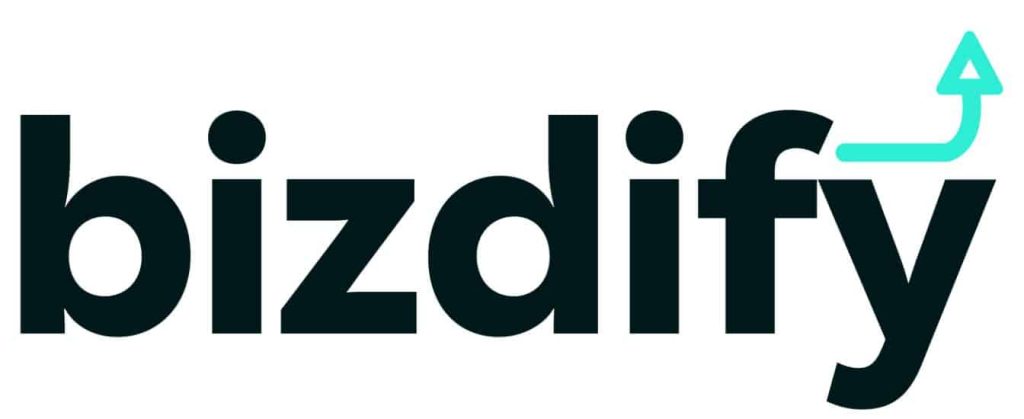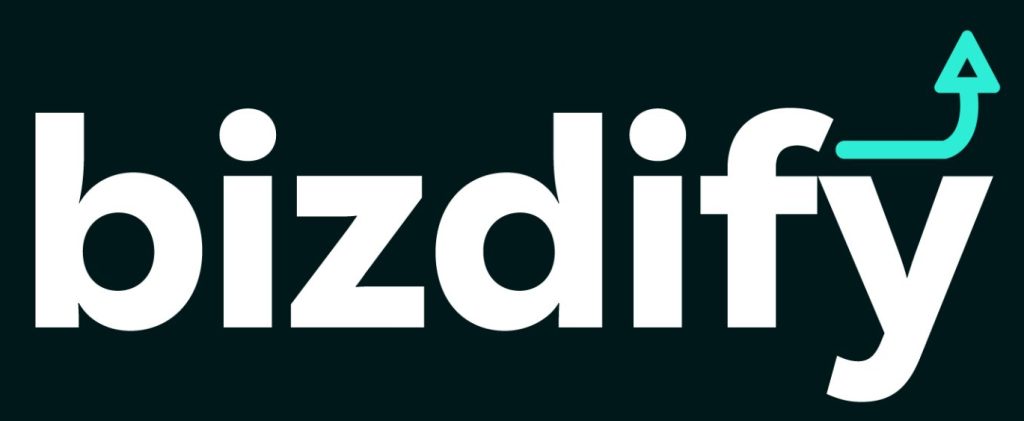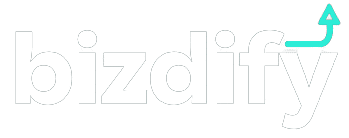Online reputation management (ORM) is becoming more and more crucial for both individuals and businesses in the current digital environment. Because there is so much information available online, managing your internet reputation has become essential to creating and preserving a brand identity. We will discuss online reputation management and its significance in this article. We will also go over some of the best ORM techniques and Working Tools for ORM, along with their advantages and disadvantages, to assist you in enhancing and safeguarding your online reputation.
The Impact of Negative Reviews
Negative reviews and bad comments can damage any brand’s reputation; bad comments are damaging even for an individual. The negative comments can spread quickly like wildfire, leading to a bad online image that can be difficult to manage and regain a positive online image.
What is ORM?
Monitoring and controlling your online presence to make sure it appropriately represents your brand and values are known as online reputation management. This entails keeping an eye on online reviews, remarks on social media, and other digital content that might affect your reputation. Building and upholding a favourable online reputation that fairly represents your brand is the aim of ORM.
Online reputation management challenges
Monitoring and affecting how a person, brand, or organisation is perceived online are part of online reputation management (ORM). While ORM has the potential to be a potent tool for developing and preserving online reputation, it also presents a unique set of difficulties. The following are a few of the typical ORM challenges:
Social media crisis: social media has developed into an effective tool for connecting with audiences for both individuals and businesses. But, there is also a chance of a crisis if a social media message becomes viral, is understood incorrectly, or if the company is associated with any dispute. An organisation’s online reputation may be significantly impacted by a social media crisis, and controlling it can be challenging and time-consuming.
Multiple channels to manage: ORM entails keeping an eye on and managing a variety of channels, including social media, review websites, search engines, and more. Keeping track of everything and ensuring a uniform strategy across all channels can be difficult when there are so many to handle. Also, it can be difficult to deploy resources efficiently, and some channels may be harder to monitor than others.
24 Amazingly Working Tools for ORM
1. Google Alerts
You may track online mentions of your company name or brand with Google Alerts, a free tool. For certain terms, you can set up alerts, and you’ll get email notifications whenever new results show up.
Positives: It is free and simple to set up. In addition to your brand name, you can track any keyword you choose.
Cons: It may omit some important points and isn’t very thorough.
2. Brand24
Brand24 is a social media monitoring tool that lets you keep tabs on mentions of your brand on social media, blogs, and other online sources. The tool allows you to directly reply to mentions, track sentiment, and find influencers.
Pricing: Brand24 offers a 14-day free trial. Paid plans start at $49/month.
Pros: Brand24 is easy to use and provides comprehensive monitoring across various channels. It also offers sentiment analysis and influencer identification.
Cons: Some users have reported issues with the accuracy of sentiment analysis.
3. Reputology
Reputology is a review management tool designed for businesses with multiple locations. It allows you to monitor and manage reviews across various review sites. You can track metrics such as response time, review volume, and sentiment analysis.
Pricing: Reputology offers a 14-day free trial. Paid plans start at $25/month per location.
Pros: Reputology is specifically designed for multi-location businesses and offers comprehensive review, monitoring, and management.
Cons: The user interface can be overwhelming for some users.
4. Hootsuite Insights
Hootsuite Insights is a social media listening tool that allows you to monitor social media conversations about your brand and industry. You can track sentiment, identify influencers, and measure the impact of your social media campaigns.
Pricing: Hootsuite Insights is included in the Hootsuite Professional and Enterprise plans, which start at $19 per month.
Pros: Hootsuite Insights is integrated with Hootsuite’s social media management platform, making it easy to manage your social media presence from one place.
Cons: Hootsuite Insights is limited to social media listening and does not include monitoring across other online sources.
5. Mention
Mention is a social media monitoring tool that allows you to monitor mentions of your brand across various online sources, including social media, blogs, and news sites. You can track sentiment, identify trends, and engage with users directly from the platform.
Pricing: Mention offers a 14-day free trial. Paid plans start at $25/month.
Pros: Mention provides comprehensive monitoring across various online sources and offers sentiment analysis and trend identification.
Cons: Some users have reported issues with the accuracy of sentiment analysis.
6. SEMrush
SEMrush is an SEO tool that allows you to monitor your search engine rankings and analyse your website’s backlinks. You can identify opportunities to improve your SEO and stay ahead of your competitors.
Pricing: SEMrush offers a 7-day free trial. Paid plans start at $99.95/month.
Pros: SEMrush provides comprehensive SEO monitoring and analysis, including backlink analysis and competitor research.
Cons: SEMrush is primarily focused on SEO and does not include monitoring across other online sources.
7. Talkwalker
Talkwalker is a social media listening tool that allows you to monitor mentions of your brand across social media, news sites, blogs, and forums. You can track sentiment, identify influencers, and measure the impact of your social media campaigns.
Pricing: Talkwalker offers a 7-day free trial. Paid plans start at $800/month.
Pros: Talkwalker provides comprehensive monitoring across various online sources and offers sentiment analysis and influencer identification. It also provides reporting and advanced analytics.
Cons: Talkwalker is more expensive than some other social media listening tools and may be too complex for some users.
8. Yext
Yext is a tool that allows you to manage your online business listings across various directories and review sites. You can ensure that your business information is accurate and up-to-date and respond to customer reviews directly from the platform.
Pricing: Yext offers a demo and custom pricing based on your business needs.
Pros: Yext provides comprehensive control over your online business listings and allows you to respond to customer reviews directly from the platform.
Cons: Yext is more expensive than some other online reputation management tools and may not be necessary for smaller businesses.
9. ReviewTrackers
ReviewTrackers is a review management tool that allows you to monitor and manage customer reviews across various review sites. You can track sentiment, identify trends, and respond to reviews directly from the platform.
Pricing: ReviewTrackers offers a demo and custom pricing based on your business needs.
Pros: ReviewTrackers provides comprehensive review monitoring and management and allows you to respond to reviews directly from the platform.
Cons: ReviewTrackers may be too expensive for some smaller businesses.
10. Awario
Awario is a social media monitoring tool that allows you to monitor mentions of your brand across various online sources, including social media, news sites, blogs, and forums. You can track sentiment, identify influencers, and measure the impact of your social media campaigns.
Pricing: Awario offers a 14-day free trial. Paid plans begin at $29/month.
Pros: Awario provides comprehensive monitoring across various online sources and offers sentiment analysis and influencer identification.
Cons: Awario may be too complex for some users.
11. Social Mention
Social Mention is a free social media monitoring tool that allows you to monitor mentions of your brand across various social media platforms. You can track sentiment, identify influencers, and measure the impact of your social media campaigns.
Pros: Social Mention is free and easy to use. It provides comprehensive monitoring across various social media platforms.
Cons: Social Mention does not include monitoring across other online sources.
12. Reputation.com
Reputation.com is an online reputation management tool designed for businesses. It allows you to monitor and manage your online reputation across various online sources, including review sites, social media, and search engines.
Pricing: Reputation.com offers custom pricing based on your business needs.
Pros: Reputation.com provides comprehensive online reputation management and allows you to respond to reviews and engage with customers directly from the platform.
Reputation.com may be too expensive for some smaller businesses.
13. BirdEye
BirdEye is a review management tool that allows you to monitor and manage customer reviews across various review sites. You can track sentiment, identify trends, and respond to reviews directly from the platform.
Pricing: BirdEye offers a demo and custom pricing based on your business needs.
Pros: BirdEye provides comprehensive review monitoring and management and allows you to respond to reviews directly from the platform.
Cons: BirdEye may be too expensive for some smaller businesses.
14. ReviewPush
ReviewPush is a review management tool that allows you to monitor and manage customer reviews across various review sites. You can track sentiment, identify trends, and respond to reviews directly from the platform.
Pricing: ReviewPush offers a 14-day free trial. Paid plans begin at $49/month.
Pros: ReviewPush provides comprehensive review monitoring and management and allows you to respond to reviews directly from the platform.
Cons: ReviewPush may not have as many features as some other review management tools.
15. Chatmeter
Chatmeter is a tool that allows you to monitor and manage your online reputation across various online sources, including review sites, social media, and search engines. You can track sentiment, identify trends, and respond to reviews directly from the platform.
Pricing: Chatmeter offers custom pricing based on your business needs.
Pros: Chatmeter provides comprehensive online reputation management and allows you to respond to reviews and engage with customers directly from the platform. It also provides reporting and advanced analytics.
Cons: Chatmeter may be too expensive for some smaller businesses.
16. BrandYourself
BrandYourself is a tool that allows you to monitor and manage your online reputation across various online sources, including search engines and social media. You can identify negative content and promote positive content to improve your online reputation.
Pricing: BrandYourself offers a free plan, and paid plans start at $99 per year.
Pros: BrandYourself is affordable and easy to use. It provides comprehensive monitoring and management of your online reputation.
Cons: BrandYourself may not have as many features as some other online reputation management tools.
17. Mentionlytics
Mentionlytics is a social media monitoring tool that allows you to monitor mentions of your brand across various online sources, including social media, news sites, blogs, and forums. You can track sentiment, identify influencers, and measure the impact of your social media campaigns.
Pricing: Mentionlytics offers a 14-day free trial. Paid plans open at $29/month.
Pros: Mentionlytics provides comprehensive monitoring across various online sources and offers sentiment analysis and influencer identification.
Cons: Mentionlytics may be too complex for some users.
18. Bizdify
Bizdify is an online reputation management agency that provides customised solutions for businesses and individuals. They offer a range of services, including Review Removals, Link Removals, content creation, and review management.
Pricing: Bizdify offers custom pricing based on your needs.
Pros: Bizdify provides personalised solutions for your online reputation management needs.
Cons: Bizdify serves high-end clients and may be too expensive for some individuals and smaller businesses.
19. NetBase Quid
NetBase Quid is a social media listening tool that allows you to monitor mentions of your brand across various online sources, including social media, news sites, blogs, and forums. You can track sentiment, identify influencers, and measure the impact of your social media campaigns.
Pricing: NetBase Quid offers custom pricing based on your business needs.
Pros: NetBase Quid provides comprehensive monitoring across various online sources and offers sentiment analysis and influencer identification.
Cons: NetBase Quid may be too expensive for some smaller businesses.
20. Trackur
Trackur is a social media monitoring tool that allows you to monitor mentions of your brand across various online sources, including social media, news sites, blogs, and forums. You can track sentiment, identify influencers, and measure the impact of your social media campaigns.
Pricing: Trackur offers a 10-day free trial. Paid plans begin at $97/month.
Pros: Trackur provides comprehensive monitoring across various online sources and offers sentiment analysis and influencer identification.
Cons: Trackur may not have as many features as some other social media monitoring tools.
21. Trustpilot
Trustpilot is a review management tool that allows you to collect and manage customer reviews on your website and across various review sites. You can also respond to reviews directly from the platform.
Pricing: Trustpilot offers a free plan, and paid plans start at $299 per month.
Pros: Trustpilot provides comprehensive review monitoring and management and allows you to respond to reviews directly from the platform. It also provides reporting and advanced analytics.
Cons: Trustpilot may be too expensive for some smaller businesses.
22. Reputology
Reputology is a review management tool that allows you to monitor and manage customer reviews across various review sites. You can track sentiment, identify trends, and respond to reviews directly from the platform.
Pricing: Reputology offers a 14-day free trial. Paid plans start at $25 per month.
Pros: Reputology provides comprehensive review monitoring and management and allows you to respond to reviews directly from the platform.
Cons: Reputology may not have as many features as some other review management tools.
23. Podium
A podium is a tool that allows you to manage your online business listings across various directories and review sites. You can ensure that your business information is accurate and up-to-date and respond to customer reviews directly from the platform.
Pricing: Podium offers a demo and custom pricing based on your business needs.
Pros: Podium provides comprehensive control over your online business listings and allows you to respond to customer reviews directly from the platform.
Cons: Podium may be too expensive for some smaller businesses.
24. ReviewInc
ReviewInc is a review management tool that allows you to monitor and manage customer reviews across various review sites. You can track sentiment, identify trends, and respond to reviews directly from the platform.
Pricing: ReviewInc offers a demo and custom pricing based on your business needs.
Pros: ReviewInc provides comprehensive review monitoring and management and allows you to respond to reviews directly from the platform.
Cons: ReviewInc may be too expensive for some smaller businesses.
Conclusion
These are just a handful of the various Working Tools for ORM for managing your internet reputation. When selecting a tool, think about things like your budget, the size of your company, and the particular features you require. To safeguard and improve the online reputation of your brand, it is crucial to invest in online reputation management.



